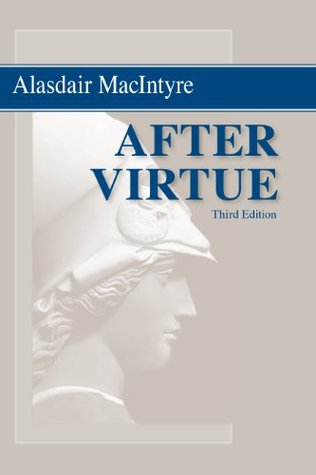When Jane Austen speaks of ‘happiness’, she does so as an Aristotelian. Gilbert Ryle believed that her Aristotelianism—which he saw as the clue to the moral temper of her novels—may have derived from a reading of Shaftesbury. C.S. Lewis with equal justice saw in her an essentially Christian writer. It is her uniting of Christian and Aristotelian themes in a determinate social context that makes Jane Austen the last great effective imaginative voice of the tradition of thought about, and practice of, the virtues which I have tried to identify.
Welcome back. Just a moment while we sign you in to your Goodreads account.


